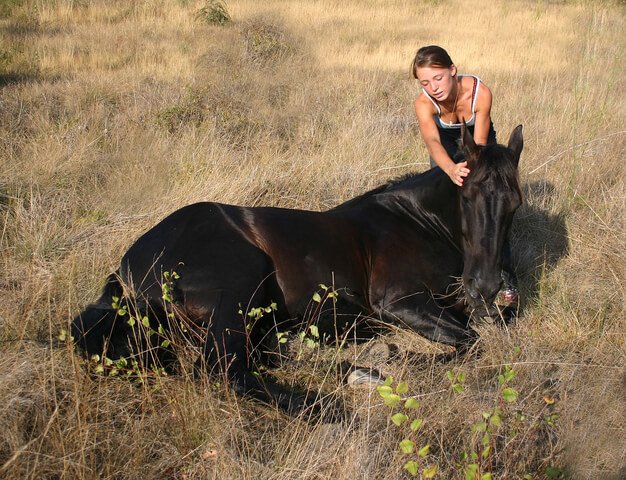An Overview of Horse Illness
The Ultimate Guide to Horse Illness: Causes, Symptoms, and Solutions Many horse illnesses can be prevented by good horse management such as regular worming. In the world of horses, the statement "a little knowledge can be a dangerous thing" is very true. It is very much in your horse's interest to find someone who is experienced and consult them whenever you have even the slightest suspicion that all is not well with your horse. You may have heard of the expression "the stockman's eye" - many illnesses can be prevented by careful observation on a daily basis. Horses are creatures of habit and each one must be treated as an individual. There are some general obvious signs of illness such as: coughing, being listless, lack of interest in their feed. discharge from the nose or eyes weight loss a dull coat Excessive sweating, pawing at the ground, looking at their flank and trying to lie down or roll are symptoms of colic ( a severe stomach ache). It is normal for a horse to rest a hind leg but if he is resting (i.e. taking the weight off )a front leg that is a sign of lameness. You can also judge the state of a horse's health by changes in behavior. For example when a horse who is normally quiet to ride starts to buck the chances are that he may have a back injury or a wound in Saddle area or under the girth.. These are some of the most common illnesses:: 1) Colic which is the number one cause of fatality in horses - call a vet at the onset of symptoms and that will greatly increase the chances of a happy outcome. 2) Degenerative Diseases such as navicular disease (horse takes short stiff steps) and ringbone which can be treated with pain killers but cannot be cured. 3) Laminitis - the hooves are hot and painful - can be worsened by rich grazing or overfeeding 4) Thrush - a smelly discharge from the frog prevented by daily picking out of foot and clean bedding. use disinfectant to clean out the foot. 5) Ringworm -.A fungus which creates round bare patches on the horse’s coat is also curable but highly contagious so don’t use the grooming equipment on other horses and do not stable the horse within touching distance of another horse. Wash your hands before approaching other horses 6) Strangles - enlarged glands abscesses at the throat which swell and eventually rupture. The horse [...]

